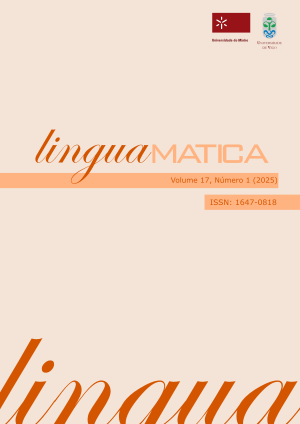Enhancing Parsing of European Portuguese Verbal Idioms
Abstract
Verbal idioms (or verbal idiomatic expressions) are multiword expressions in which the main verb is distributionally frozen with one or more of its arguments (subject or complements). For the most part, they convey a non-compositional meaning that cannot be inferred from the individual meanings of their constituents when used separately.
The primary goal of this project is the creation of a system capable of processing verbal idioms from European Portuguese, seamlessly integrated into a natural language processing pipeline.
To this end, two key components were developed: (i) the creation of a corpus annotated for instances of verbal idiomatic expressions in European Portuguese, and (ii) the development of a system that generates dependency parsing rules to identify proper instances of specific verbal idioms based on the linguistic restrictions outlined in a lexicon-grammar matrix.
The system is evaluated using manually produced sentences, artificially generated ones, and real sentences from two selected corpora annotated for verbal idioms. The overall results indicate that the Precision of the system is very satisfactory; whilst the Recall is less favorable, highlighting the need for further efforts to enhance the automatic identification of verbal idioms in texts.
A portion of the annotated corpora is made available to the scientific community.
Copyright (c) 2025 David Antunes, Jorge Baptista, Nuno Mamede

This work is licensed under a Creative Commons Attribution 4.0 International License.
Authors who publish with this journal agree to the following terms:
- Authors retain copyright and grant the journal right of first publication with the work simultaneously licensed under a Creative Commons Attribution License that allows others to share the work with an acknowledgement of the work's authorship and initial publication in this journal.
- Authors are able to enter into separate, additional contractual arrangements for the non-exclusive distribution of the journal's published version of the work (e.g., post it to an institutional repository or publish it in a book), with an acknowledgement of its initial publication in this journal.
- Authors are permitted and encouraged to post their work online (e.g., in institutional repositories or on their website) prior to and during the submission process, as it can lead to productive exchanges, as well as earlier and greater citation of published work (See The Effect of Open Access).













